
The flood of innovations emerging from the engine rooms of AI development, combined with the intensifying battle for attention, is making it increasingly difficult to distinguish genuine breakthroughs from overhyped announcements — and to assess the true impact of artificial intelligence.
Trying to keep up with every AI trend and prediction often leads to overwhelm and inefficiency and can undermine the trust of both customers and employees. Rather than aiming for maximum agility, organizations should focus on developing a medium- to long-term strategy based on a realistic assessment of how AI can add value. This includes expanding key performance indicators (KPIs) to account for ecological and societal impact and making deliberate decisions about where AI genuinely creates benefit — and where it might compromise the quality of products or services.
A crucial pillar in this approach is developing a clear set of values around AI. Aligned with an organization’s unique DNA, this AI stance should define which tasks remain in human hands, how AI use is communicated, how much importance is placed on the energy consumption of large language models (LLMs), and how much should be invested in employee training or algorithm development.
At a broader level, this marks the shift from merely following trends to actively shaping the future. Whether a business model is driven by retrospective data analysis or guided by a forward-looking vision — this is a decision that needs to be made in 2025, as we enter the era of a new foundational technology.
The briefing "Navigating Artificial Intelligence Beyond the Hype", developed in collaboration with the ETH Zurich AI Center, offers a compact planning framework with specific use cases and areas of action for working with AI — along with a look ahead to both the near and distant future.


Is the classic automobile history and the future of mobility purely electric and autonomous? Not necessarily, says Stephan Sigrist from the Swiss think tank W.I.R.E. – and explains what we can learn from the classics of yesterday for the world of tomorrow.

The GENERATE AI-MPACT study was developed by Think Tank W.I.R.E. in partnership with the ETH AI Center for the Innovate Switzerland community. Innovate Switzerland lays the foundation for effective and sustainable innovation in the digital age. The community develops well-founded and practice-oriented thought leadership content for decision-makers in business, politics and society. At its core is the conviction that a responsible approach to cloud and AI technologies is crucial to transferring Switzerland's strengths from the analogue to the data economy and ensuring its long-term success.

The introduction of ChatGPT as the first publicly accessible application based on generative artificial intelligence has ushered in a new era—a "Sputnik moment" with global implications for the economy, science, and society. In this context, there is an international consensus that regulatory frameworks and global agreements are necessary to align the advantages of this new foundational technology with responsible usage. The EU, for instance, has adopted the "AI Act," the world's first comprehensive AI law, which establishes the legal framework and requirements for AI systems. As a successful economic, financial, and research hub, and as the host country for many international organizations, Switzerland is well-positioned to play a globally relevant role in the development and testing of AI in this new era. This position paper identifies two central cornerstones for Swiss AI regulation and eight priorities for legislators, scientists, and society to create a safe and trustworthy framework for working with AI.
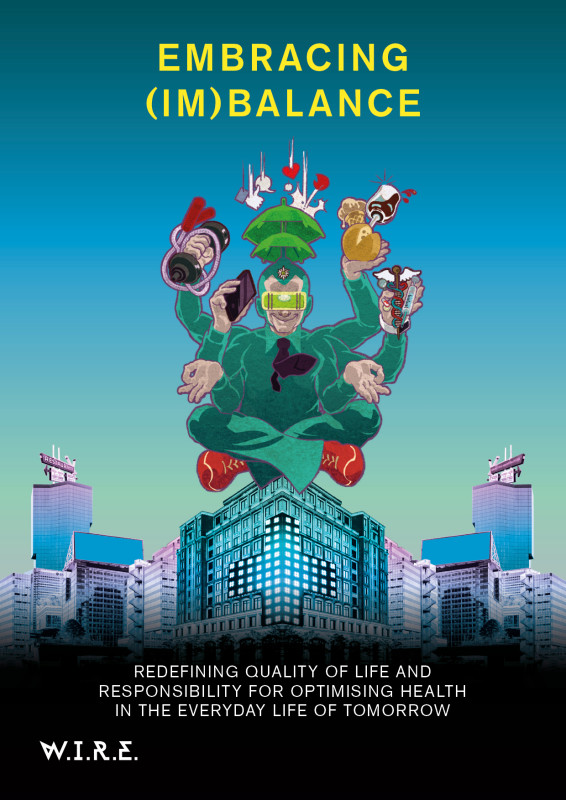
With the rapid spread of non-communicable diseases (NCDs), our daily lives are increasingly taking centre stage and becoming a critical component in the healthcare system of the future. Such a “life-care” system involves networks of traditional providers from the disease-oriented healthcare system, in addition to new players ranging from retailers to food manufacturers, real estate to mobility providers, and even Big Tech. However, the foundation lies on an adapted definition of quality of life that, in view of the growing number of risks in daily life, allows and even encourages enjoyment as a central element of a holistic healthcare system – alongside medical solutions and behavioural changes. This requires concrete indicators that help balance healthy and unhealthy behaviours as well as the different added values for biological, psychological, and social health.
The infographic "Embracing (Im)Balance" provides an overview of the interplay between health and lifecare as well as a balanced relationship between enjoyment and health optimisation.
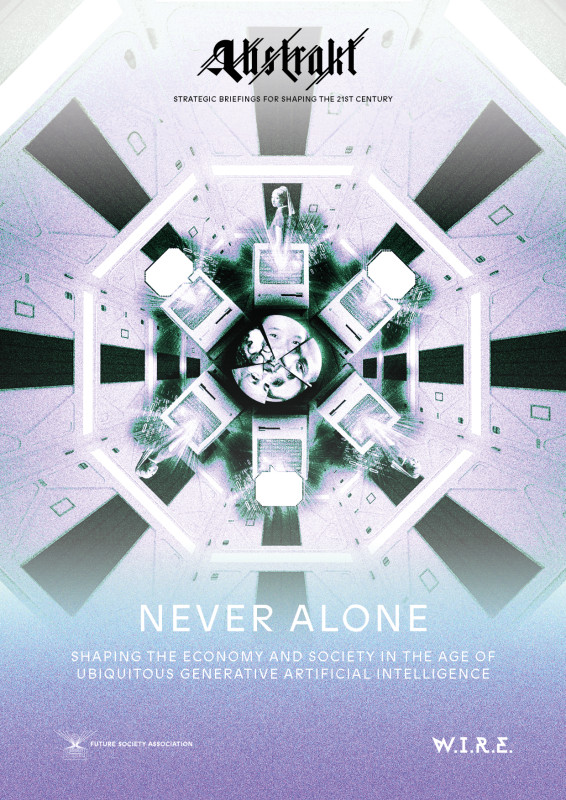
The widespread availability of generative artificial intelligence in the form of the ChatGPT bot has caused uproar worldwide with high expectations and utopian as well as dystopian predictions. This is not the first time that massive job losses and complete disruptions in various markets have been mentioned in connection with learning machines. However, despite many years of digital transformation, the reality today is characterised by a shortage of skilled workers, and much of the artificially generated content has shortcomings that hardly meet the high quality standards that apply in sectors ranging from banking to medicine or journalism. This makes a differentiated analysis and classification of the real potentials, but also of the limitations and the resulting opportunities and dangers, all the more important. The fact is, artificial intelligence will be a constant companion from now on. We are challenged to use it intelligently, to consciously do without it and to differentiate ourselves with business models, but above all with our competences.
The ABSTRAKT briefing «NEVER ALONE», which was developed within the framework of the Future Society Association in exchange with the partners of the initiative, presents a compact and forward-looking basic classification of generative AI and shows how we should use the technology in the long term beyond the hypes - and why artificial intelligence will continue to need human intelligence in the future.
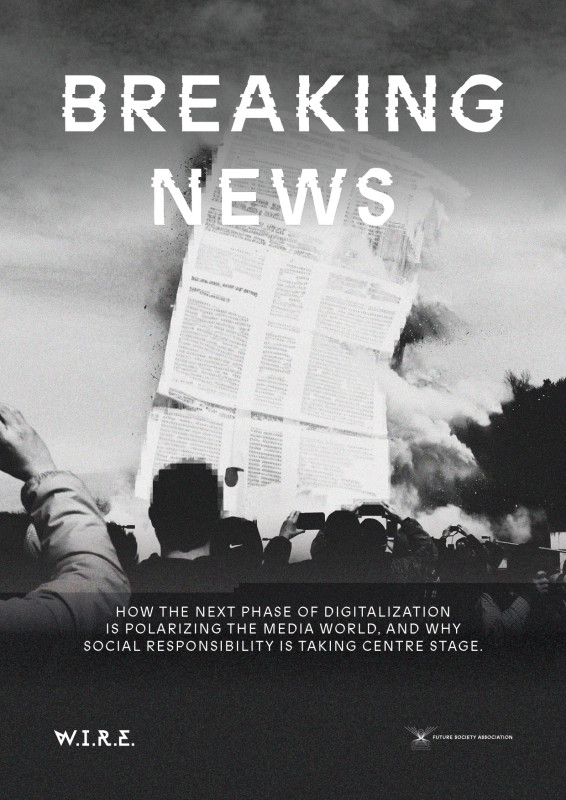
The publication "Breaking News" offers a comprehensive analysis of the impact of digitalisation on the media industry and takes a look into the future.
By looking at the fundamental changes brought about by social media, as well as the challenges and opportunities associated with technological innovation, the publication provides valuable insights and recommendations for action for participants in the media landscape.

Disappearing dress codes, customers as designers and wearable technology; in recent years the production and function of clothing has undergone massive change. New manufacturing technologies have brought bespoke design within reach of many consumers for the first time. Miniature sensors can turn ordinary garments into smart devices. And blurring gender roles and class distinctions point the way towards a more fluid approach to clothing, fashion and design.
The Future of Clothing offers a critical introduction to these developments from an interdisciplinary perspective, engaging with their implications for the clothing industry and related fields. You'll learn how mass-personalization impacts the luxury market, the effects of automation on craftsmanship and how AI design may affect individual style choices.
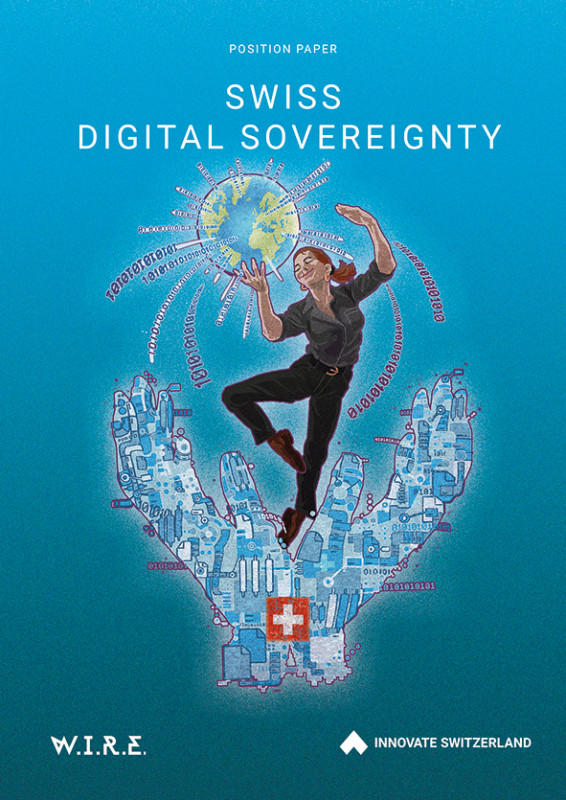
Data-driven value creation is becoming a key factor for economic and societal prosperity. Therefore, it is increasingly important for individuals, organizations, and policymakers to effectively use and protect data. The position paper “Swiss Digital Sovereignty” highlights the importance of digital sovereignty for the future resilience of Switzerland and outlines the key areas of action.
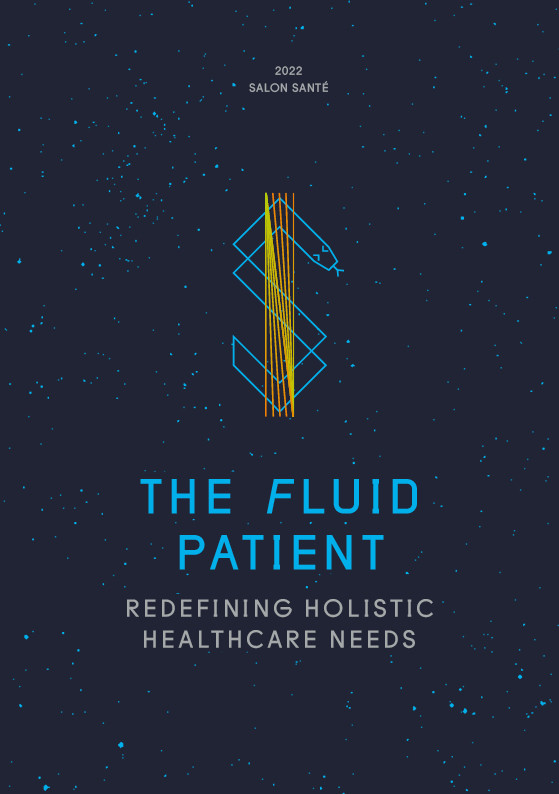
The healthcare system of tomorrow will be data-based. The prerequisite for efficient, customised and predictive medicine is recording the benefits of therapies, services and behavioural changes. Accordingly, the importance of measuring the success of treatment and defining meaningful metrics is growing in terms of value-based healthcare. However, a broader definition of health poses new challenges for the system, as not all quality criteria can be measured using medical diagnostics. A sustainable healthcare system therefore requires holistic and dynamic assessment models that utilise new qualitative assessment principles and, above all, take into account "fluid patients" whose medical and personal needs change over the course of their lives.
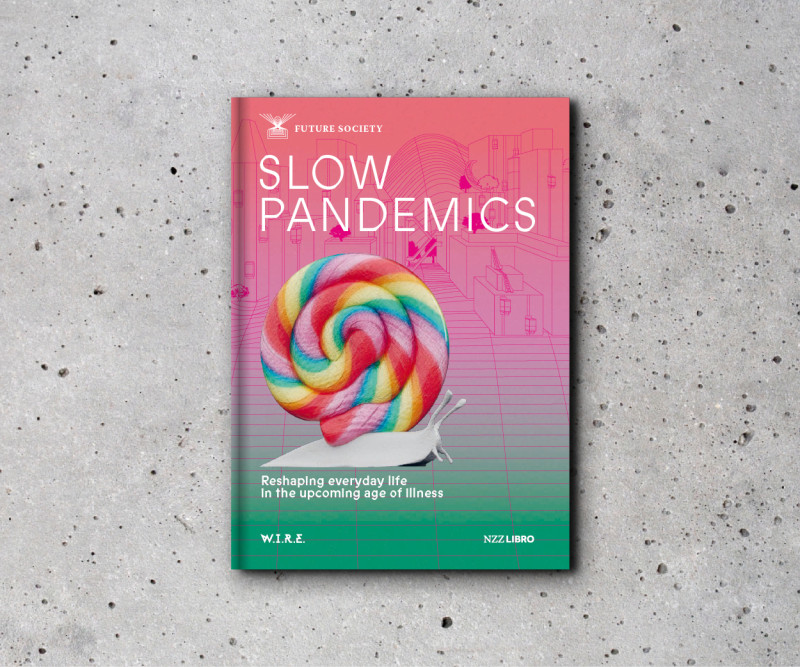
Medical progress and greater prosperity have helped us to not only live longer, but also stay healthy longer. However, the downsides of ever greater convenience are now becoming apparent. A growing number of circulatory diseases, type 2 diabetes or cancer as a result of the modern lifestyle with less exercise and more fast food, more mental illnesses and addictions to digital aids are part of the new normal. These "slow pandemics" require a new healthcare system that focuses on everyday life. New markets for prevention will be opened, but only with a new responsibility to society, collaboration among all stakeholders, and a redefinition of quality of life.

The metaverse is intended to connect the digital platforms of the present day into a common space. This could benefit healthcare, taking in everything from consultations to complex surgeries. But there’s a long way to go until the technology, the political framework and society are ready and on the same page. Marc Holitscher, National Technology Officer (NTO) of Microsoft Switzerland, and sociologist Jonathan Harth discuss what it will take for the next internet generation to promote joint action and solidarity.
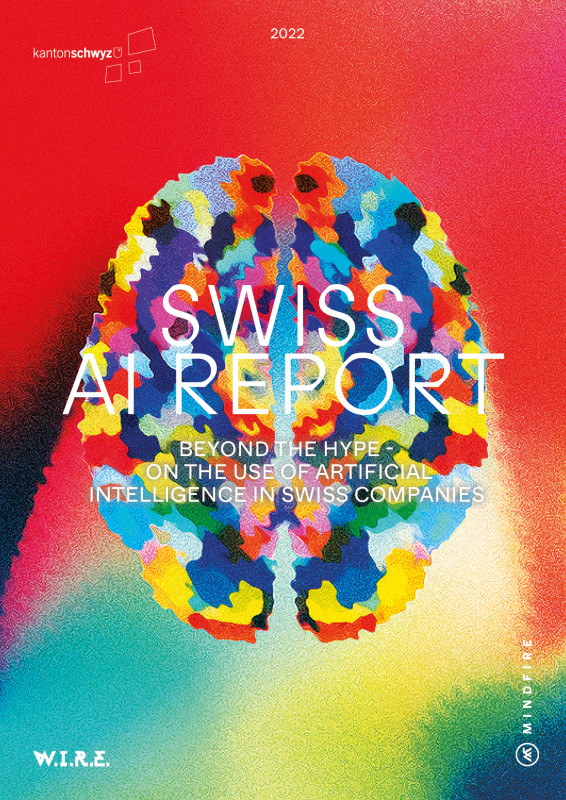
The past few years have been crucial for the maturation of Artificial Intelligence (AI)* technology: after decades of disparate development spurts, AI applications have now grown beyond sandboxes and speculative scenarios, and are enterprise ready. Only the findings from practical use and operational framework conditions remain at a low level of transparency, and Switzerland as a hub for the development of AI applications remains underexposed in analyses. The Swiss AI Report sheds light on this blind spot and provides insights into the real use of AI in Swiss companies – beyond the hype.
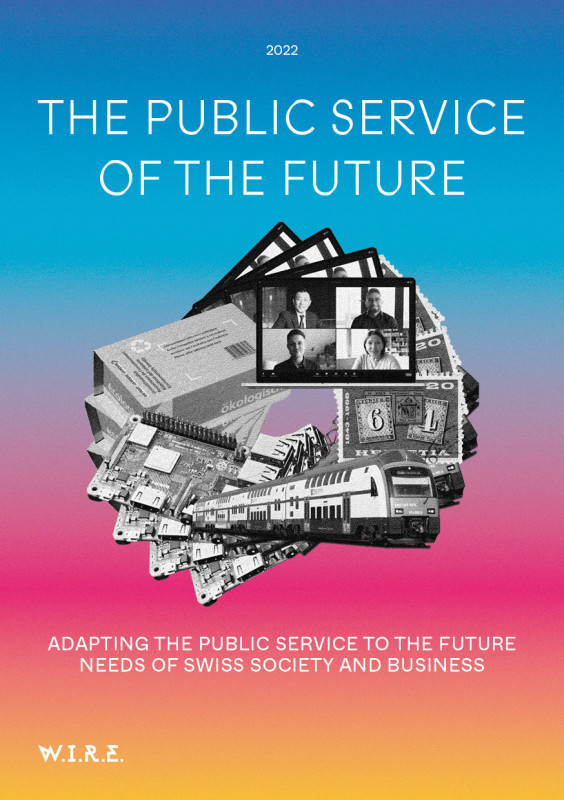
In Switzerland, "service public" refers to the basic provision of Swiss society and the economy with essential infrastructures, goods and services. It pursues the overarching goal of generating added value for society and, as a consequence, must incorporate the changing needs of the population and businesses. However, the current public discussion in Switzerland is strongly oriented towards the past and gets caught up in unproductive ideological debates about principles. Too little attention is paid to the question of which future needs public services must address.
The white paper "The Public Service of the Future" by W.I.R.E., which was prepared with the support of Swiss Post, identifies 13 public service fields that are gaining in importance for Swiss society and the economy and that can provide a basis for a constructive and holistic, public-oriented dialogue.
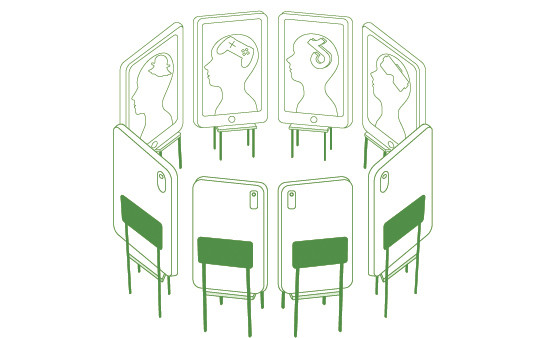
Online addiction has been on the rise for years, and those affected are getting younger and younger. As the appeal of digital applications is set to rise, the risk of addiction will only increase. In this context, the options for digital therapy available today should make it easier to reach more people. Psychologists Franz Eidenbenz and Hans-Jürgen Rumpf see expert treatment that takes other mental health conditions into account as the key to successful therapy and advocate the widespread use of digital tools with clearly defined limits.
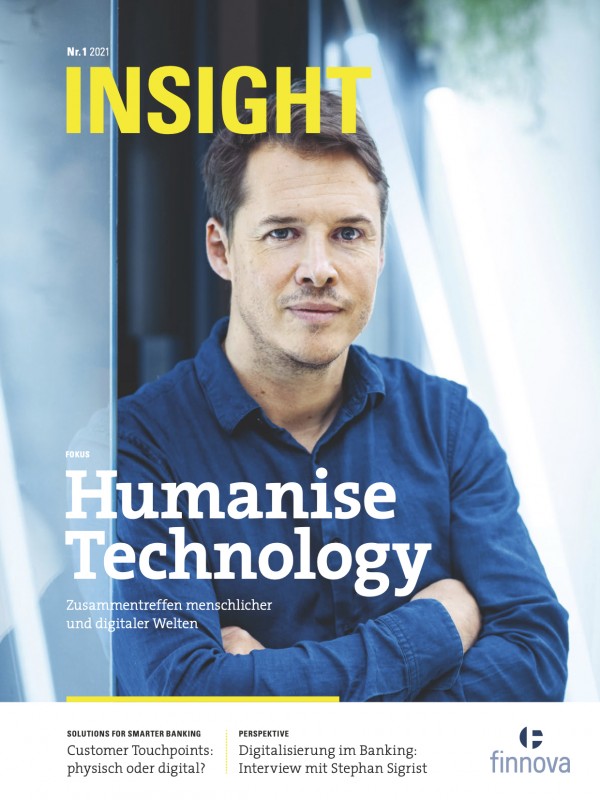

The current turbulence of the corona crisis casts long shadows on the near and distant future in terms of our health, but also in terms of the economic and social consequences. In addition to react to the new framework conditions, it is important to keep an eye on the long-term perspectives. However bleak times are today - sooner or later we will return to a new normality, for which we must prepare ourselves today.
With its NAVIGATOR, W.I.R.E. has developed a soundly based early warning system. It helps businesses, administrations and NGOs find relevant and opportune discoveries within and beyond their own fields of activity – to identify, structure and orientate an independent, long term strategy.
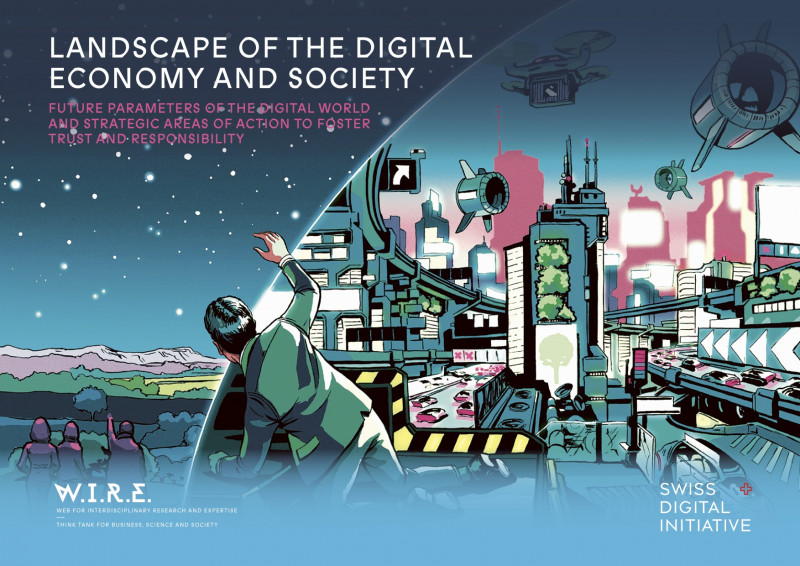
After the focus for innovation in recent years was primarily characterized by technological advances, companies in particular are increasingly faced with the need to understand the consequences of digitalisation for society and to anchor them as an integral part of long-term business models. Set against this background, W.I.R.E. launches the «Future Society Association», an interdisciplinary platform for the early recognition of future societal conditions. For the «Swiss Digital Initiative» W.I.R.E. developed a map of the digital society. It provides an overview on the challenges and opportunities arising from the digital transformation in the next decade and identifies strategic fields of action for decision makers and organisations.
> out of stock

There are digital technologies designed to encourage dialogue and solidarity between the generations. But often this only happens if certain analogue requirements are met. A contribution to the discussion about "Solidarity in a digital world", on behalf of the Sanitas health insurance foundation.

The high dynamic of change challenges the interconnected world: On the one hand, an enormous vulnerability to rapid and unexpected events such as a pandemic is manifesting itself. On the other hand, long-term changes as a result of digitalization, demographic or climate change require new framework conditions for the economy and society. The FUTURE SOCIETY ASSOCIATON launched by W.I.R.E. connects leading Swiss companies with foundations, universities, politics and civil society and serves to systematically identify social opportunities and challenges and to develop innovative ideas to shape the future.
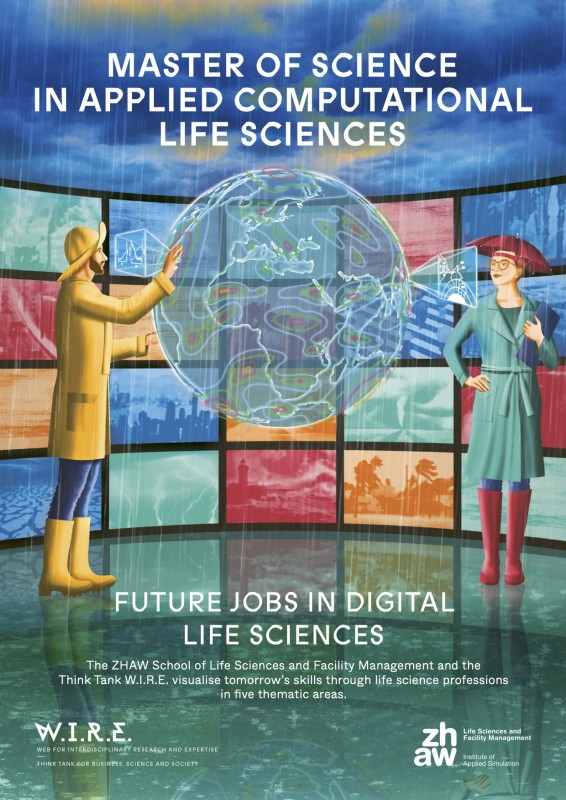
The ZHAW School of Life Sciences and Facility Management and the Think Tank W.I.R.E. visualise togehter with artist Marco Cresta tomorrow’s skills through life science professions in five thematic areas.

Cyber security is not merely about weeding out technological flaws to prevent crime. Cory Doctorow, Canadian-British science fiction author, activist and journalist, explains why we need an open, uncensored discussion about security systems, realistic analyses of the true costs of leakages and a liability urge for the firms and people who are entrusted with delicate data.
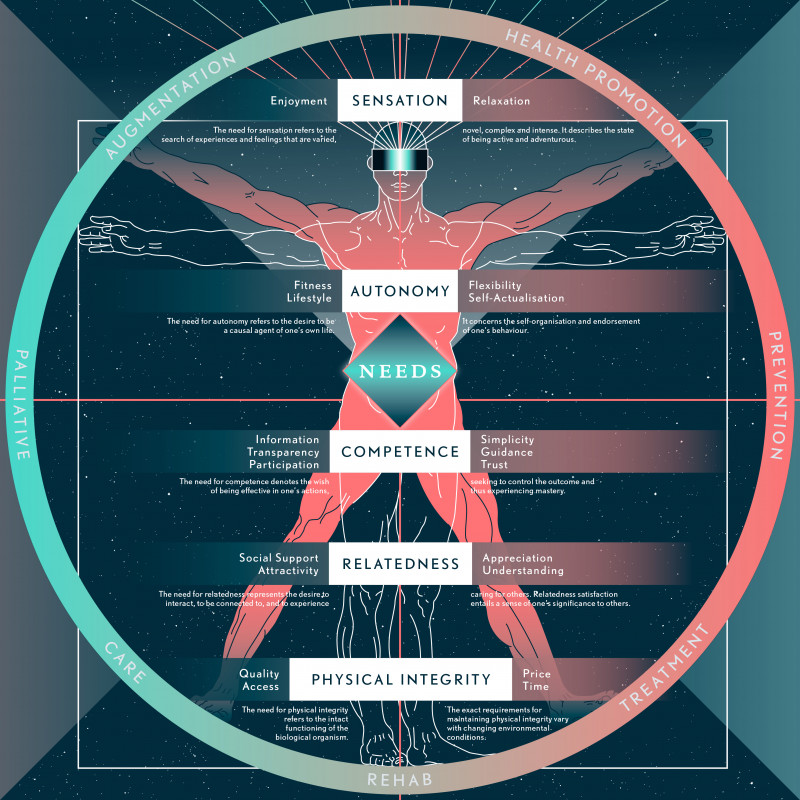
Healthcare is changing as a result of digital transformation, increasing life expectancy and changing social norms. However, reshaping healthcare through sustainable innovation and the creation of uncontested market space does not primarily require an exclusive focus on technology, but a nuanced understanding of future healthcare needs – of patients as well as society. These future needs – which can be contradictory – are the foundation for effective solutions and technologies. This requires a renewed focus on social innovation aimed at future needs and the fundamental structures of healthcare systems as a next step in the process of redesigning healthcare. Order the Future Healthcare poster for CHF 20.- at info@thewire.ch.

Digitalisation promises opportunities for economic growth and a high quality of life. Switzerland stands to benefit. The first step is to understand the mechanisms, areas of application and long-term consequences. The broschure «SWITZERLAND'S DIGITAL FUTURE» is designed to give an overview. It describes the DNA of Switzerland as a business location and illustrates three scenarios for tomorrow’s digital Switzerland.

For the federal government’s «Digital Switzerland» conference, W.I.R.E. has produced a short film on the hot topic of digitalisation. Its message is that people, not technology, should be central to the digital world.

We are living ever longer. This is leading to new options for structuring not only our old age but our entire lives: The time for parent-hood can in future be selected flexibly, relationships with smart machines will open up new freedoms and lifelong learning will become the norm.
In the book entitled "How we will live tomorrow" (available in German), newly published by NZZ Libro, the think tank W.I.R.E. illustrate 44 alternative models for a longer self-determined life.
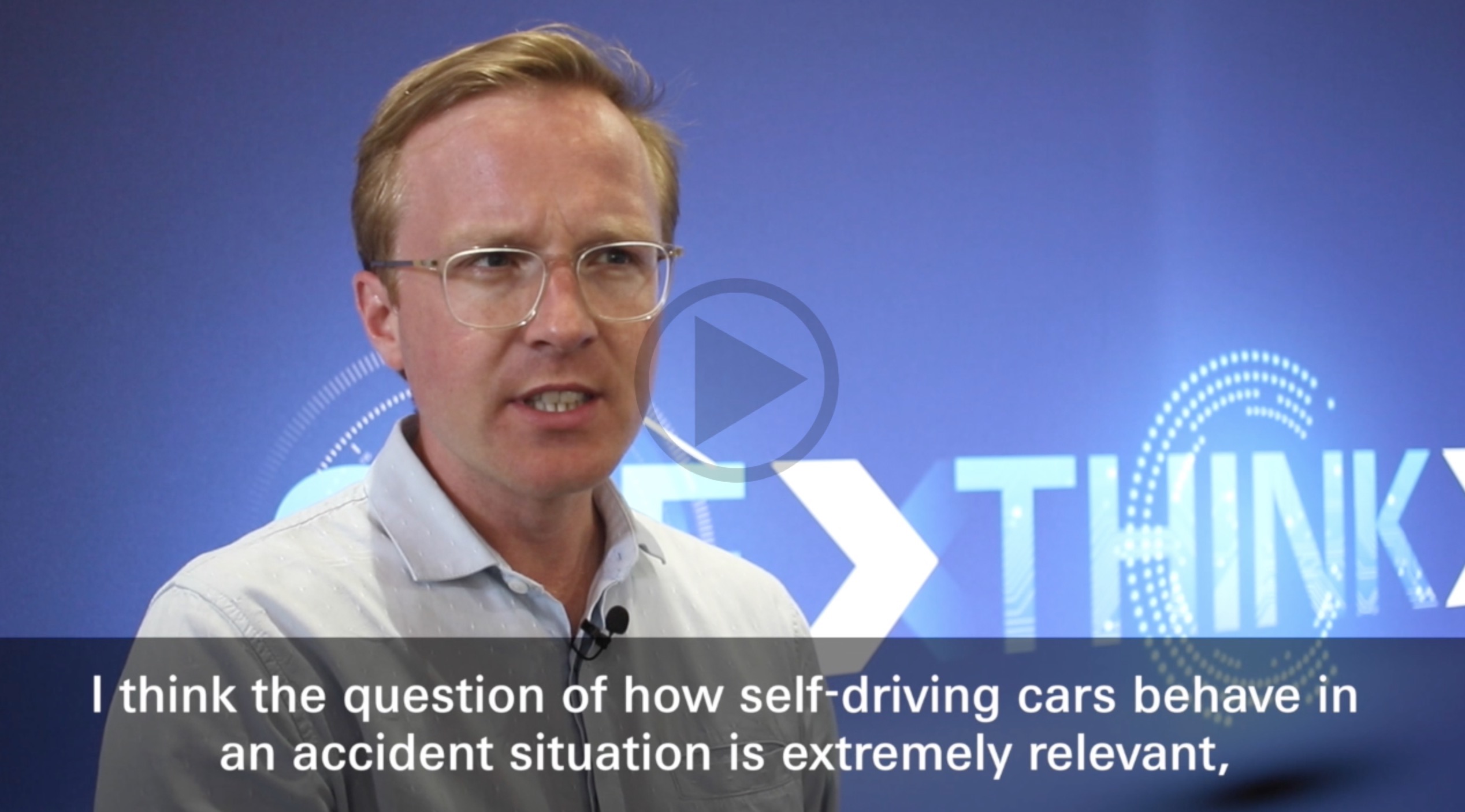
Stefan Pabst analyses the future of mobility. At the interview following his keynote speech at the ZF Race Camp he talks about technical and social aspects of mobility and future trends concerning self-driving cars.
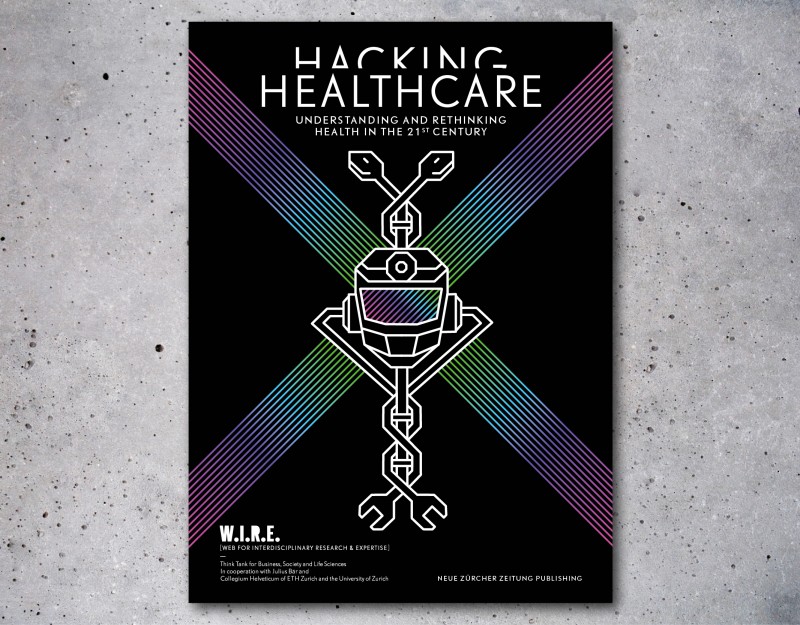
Understanding and Rethinking Health in the 21st Century

Longevity is a goal aimed at by every entity with a life of its own: in nature and politics, by business and by us as human beings Nevertheless, we often take short-term action. In a world that is rapidly changing the capacity to react, flee or adapt a product range at speed is essential.. In parallel, long-term strategies for the day after tomorrow have to be developed and things worth preserving have to be protected.
But how do we know when to preserve, when to let go? Where do we have to create robust structures to safeguard longevity? Where is short-term thinking or a short life needed?
ABSTRAKT No 14 goes in search of answers about the art of longevity. . Contributors include Yuval Harari, historian and author of the international bestseller “Sapiens: A Brief History of Humankind”, Sven Regener, front man of the legendary Berlin rock ’n’ roll band “Element of Crime” and author of the cult book “Herr Lehmann” (“Berlin Blues”), and Steven Chu, Nobel laureate in physics and former U.S. Secretary for Energy under President Barack Obama.
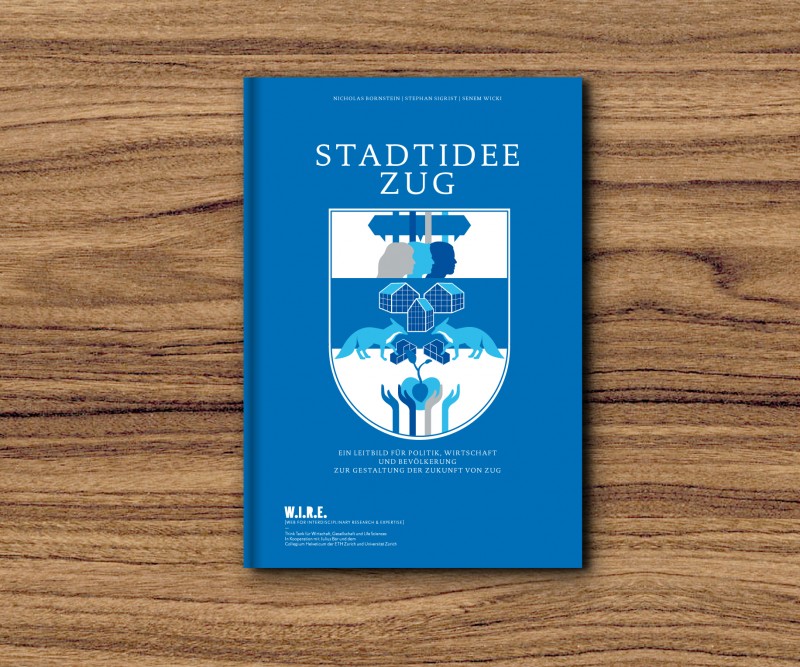
What should a successful global small town look like in 20 years’ time? What compass can help it to remain an attractive location for citizens and companies? The municipal council of Zug came to us with these questions.
In response, W.I.R.E. developed the “Zug urban concept” as a guideline and long-term vision for the development of a desirable and possible future for the town of Zug. The aim of the urban concept is to create an environment in which the citizens of Zug will still feel at home in a prosperous, livable and internationally successful Swiss town in another 20 years’ time.
[Web for Interdisciplinary Research & Expertise]
Think Tank for Business, Science & Society
W.I.R.E. Zurich | Hallwylstrasse 22 | CH-8004 Zurich | Switzerland
W.I.R.E. London | 34 Albert Street | London NW1 7NU | United Kingdom
+41 43 243 90 56 | info@thewire.ch | www.thewire.ch

